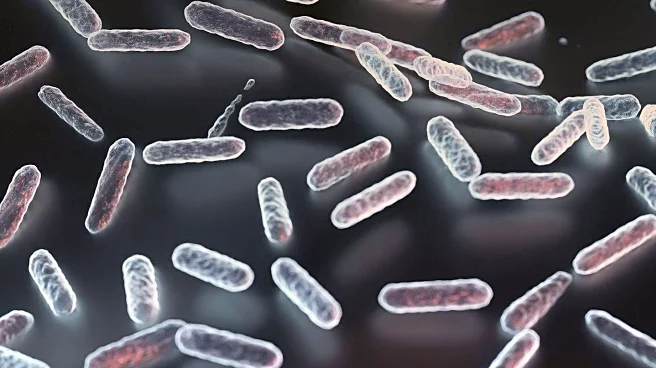What's Happening?
MIT scientists have discovered that the amino acid cysteine can activate an immune signaling pathway, enabling stem cells to regenerate new intestinal tissue. This finding could offer a new approach to repairing tissue damage caused by radiation or chemotherapy treatments. The study, conducted on mice, suggests that a cysteine-rich diet or supplementation could potentially mitigate chemotherapy or radiation-induced injury. The research, led by Omer Yilmaz, director of the MIT Stem Cell Initiative, highlights the natural dietary compound's ability to enhance intestinal stem cell regeneration, marking a significant advancement in understanding nutrient-specific impacts on stem cell fate and tissue health.
Why It's Important?
The discovery of cysteine's role in intestinal regeneration is significant for cancer patients undergoing treatments that often damage the intestinal lining. By potentially reducing such damage, cysteine could improve recovery times and overall patient outcomes. This research underscores the importance of dietary components in medical treatments, offering a non-synthetic, accessible method to support tissue healing. The broader implications include potential applications in other areas of stem cell research, such as hair follicle regeneration, which could lead to new therapeutic strategies across various medical fields.
What's Next?
The research team plans to further investigate the effects of cysteine on other types of stem cells and explore additional amino acids that may influence stem cell regeneration. These studies could uncover new mechanisms for nutrient-driven cell fate decisions and gut health improvements. The ongoing research aims to expand the understanding of dietary impacts on stem cell activity, potentially leading to novel dietary recommendations for enhancing tissue regeneration in clinical settings.
Beyond the Headlines
This study opens up ethical and cultural discussions about the role of diet in medical treatments, emphasizing the potential for natural compounds to replace or complement synthetic drugs. It also raises questions about accessibility and dietary education, as understanding the benefits of specific nutrients could empower patients to make informed choices about their health. The long-term impact could shift medical practices towards more integrative approaches that combine traditional treatments with dietary interventions.








